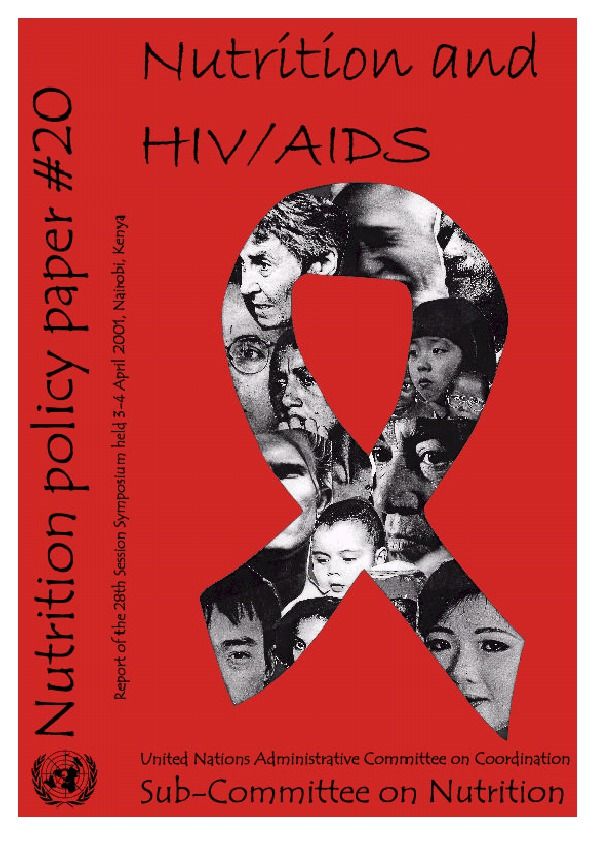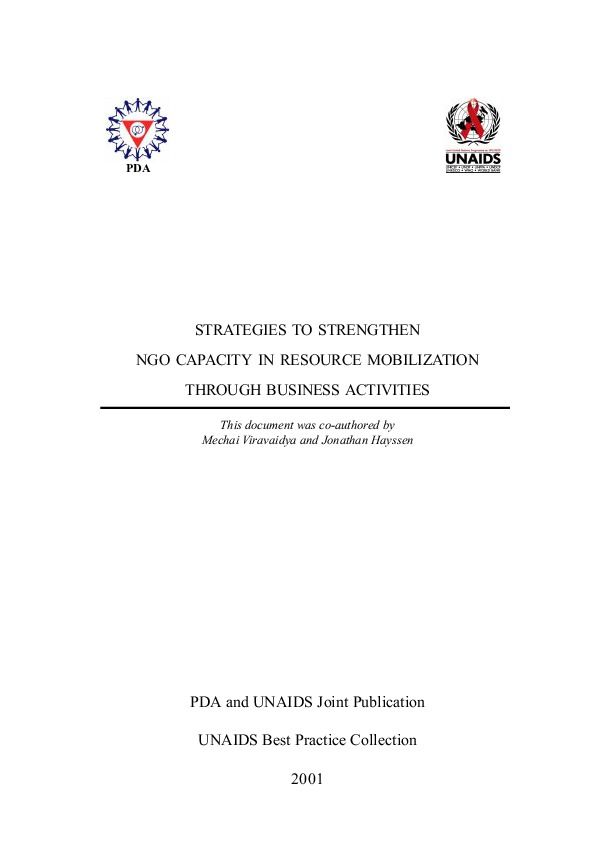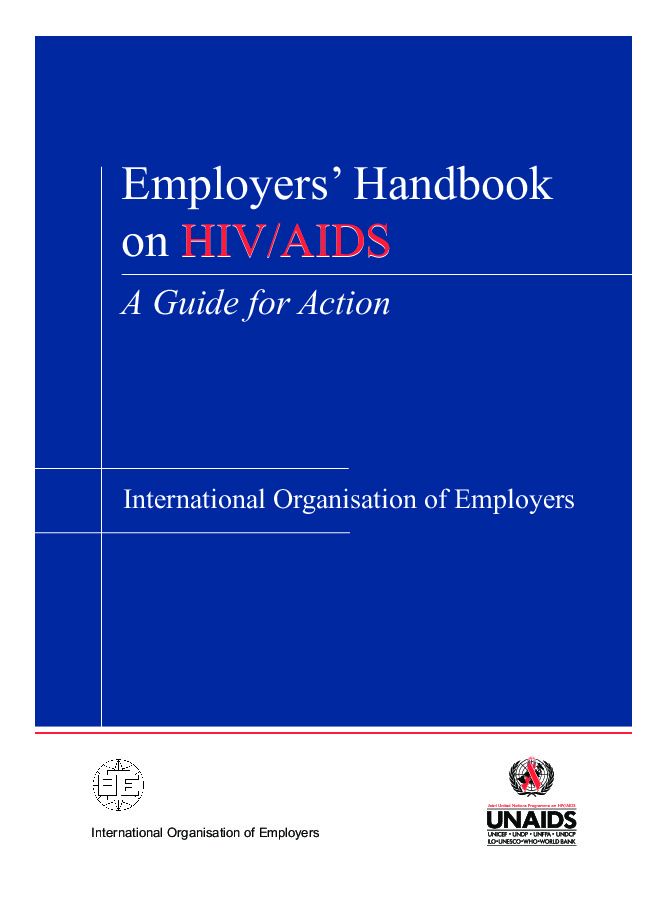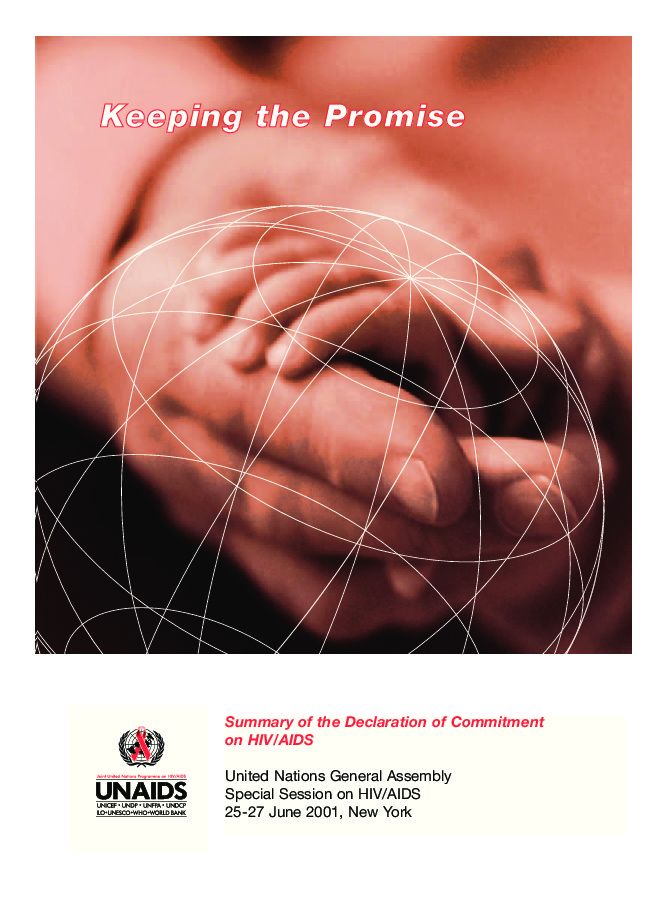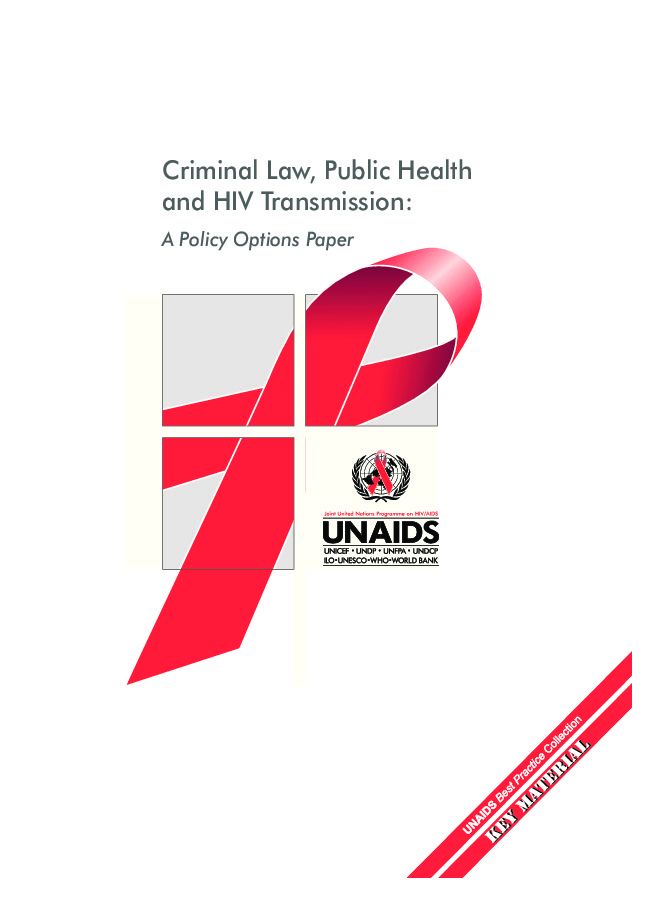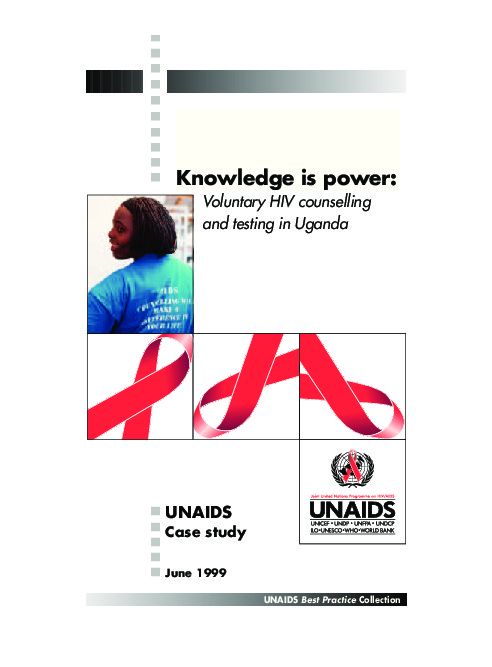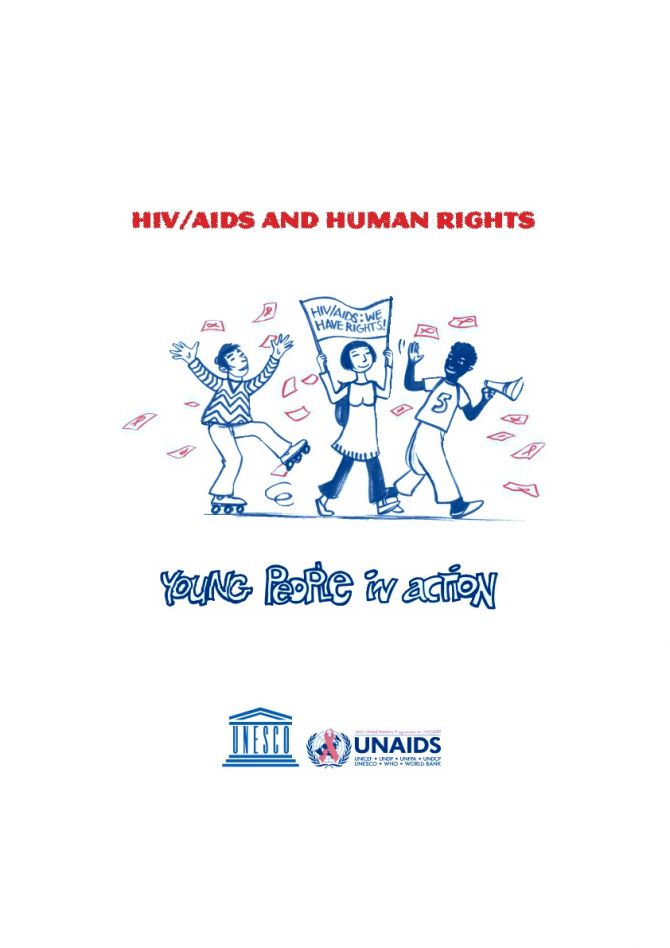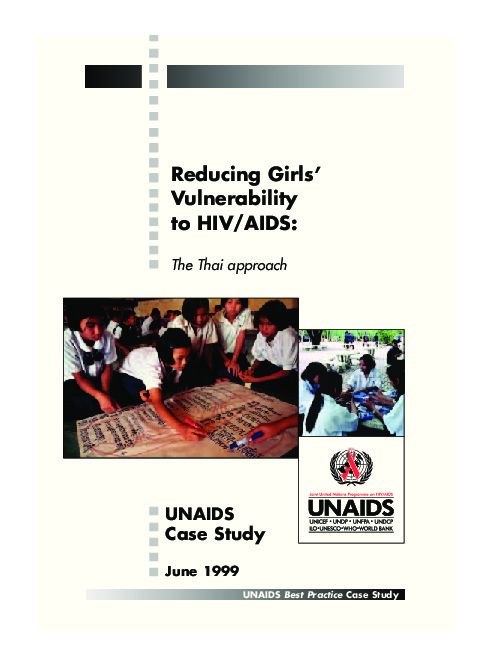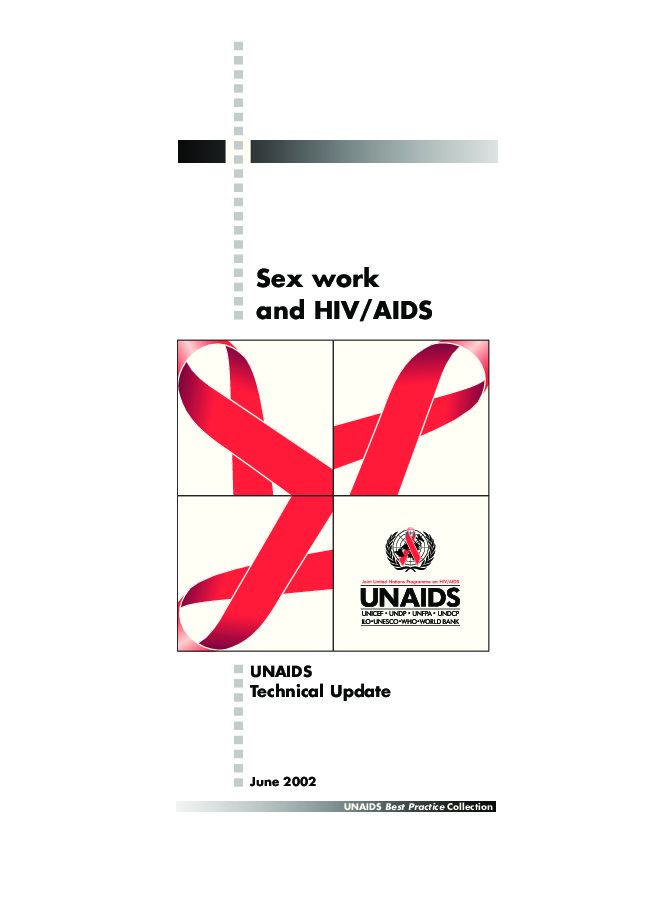Documents
Nutrition Policy Paper Number 20 on Nutrition and HIV/AIDS : report of the 28th session symposium held 3-4 April 2001, Nairobi, Kenya
03 December 2001
This Nutrition Policy Paper is based on the ACC/SCN Symposium on Nutrition and HIV/AIDS held in Nairobi in April 2001. The objective of the symposium was, firstly, to stimulate collaboration between the nutrition and HIV/AIDS communities. The second objective was to examine a broad range of nutrition issues that have a direct bearing on policies and programmes aimed at stemming the spread of HIV and mitigating the worst effects of AIDS. This report provides technical information, policy guidance and informal reflections. It also contains the ACC/SCN statement arising from the symposium, and in Annex 1, a fact sheet on the interactions between nutrition and HIV/AIDS.
Documents
Strategies to strengthen NGO capacity in resource mobilization through business activities
31 December 2001
This UNAIDS Best Practice key material is directed at managers of national and international NGOs working on HIV/AIDS and other health and development issues. It is intended to increase their awareness of the opportunities, and possible problems, associated with alternative resource mobilization strategies, with a special focus on commercial activities. It is hoped that this will motivate NGO managers to determine and begin implementing the most appropriate resource-generating strategies to enable their organizations to continue and expand their important work.
Documents
Employers' handbook on HIV/AIDS : a guide for action
05 June 2002
Based on feedback from members of the International Organisation of Employers (IOE), and through IOE’s extensive business networks, this handbook documents selected initiatives in the workplace, designed to minimize the impact of HIV/AIDS and to maximize prevention efforts. Such initiatives include HIV/AIDS prevention programmes, making information about the virus widely available in the workplace, encouraging informed and supportive attitudes towards co-workers, and promoting changes in attitudes and behaviour towards sex. Some employers are also establishing care programmes to treat opportunistic infections among workers and families, reduce the prevalence of sexually transmitted infections and even offer antiretroviral drugs to attack HIV itself. The handbook also provides details of results obtained and lessons learned from the various initiatives undertaken by employers worldwide.
Documents
Criminal law, public health and HIV transmission : a policy options paper
24 June 2002
To assist in the development of sound public policy, this document: proposes principles that should guide thinking on the question of criminal law and HIV/AIDS; identifies a number of public policy considerations that States should take into account when making decisions about the use of the criminal law; considers the alternative to criminalization presented by public health laws discusses if and how the criminal law might be justifiably applied; and concludes with recommendations to governments, police, prosecutors, judges and public health authorities regarding the appropriate use of criminal sanctions and coercive public health measures.
Documents
Knowledge is power: Voluntary HIV counselling and testing in Uganda
27 June 2002
The effect of the HIV/AIDS epidemic in Uganda has been severe. In the late 80s, Uganda had the highest rates of HIV infection in the world. Yet, it had few HIV testing services with counselling programmes. As a result, the AIDS Information Centre (AIC) was established to provide anonymous, voluntary and confidential HIV testing and counselling services. It operates under the premise that knowing one’s serostatus is an important intervention in controlling HIV infection. This report documents the history of the AIC, its progress, and the demographic characteristics and HIV rates of its clients. It records AIC’s HIV counselling and testing procedures, and its effect on risk reduction. Complementary integrated services such as family planning, STI management and education and referral for TB are also discussed, in addition to AIC’s various efforts to reach out to the community through drama groups, peer educators and social marketers.
Documents
HIV/AIDS and human rights : young people in action. A kit of ideas for youth organizations
01 July 2002
When and where misinformation, taboos, prejudice and fear regarding HIV/AIDS predominate, fundamental human rights are repeatedly abused and violated. Young people are often those most vulnerable and exposed. This kit shows that many young people are demonstrating their commitment to take up the challenge and reverse this situation successfully. It is intended to provide young people with information, motivation and inspiration to undertake the creative, daring and crucial action needed to make respect for human rights in the context of HIV/AIDS become a reality for all.
Documents
Reducing Girls’ Vulnerability to HIV/AIDS: The Thai approach
04 July 2002
In Thailand, too many girls find themselves at an early age in the sex industry, usually for lack of other options for earning a living. Young girls are desirable because they are thought to be “safe” and uninfected with HIV, but the risk of infection to them, and thence to their clients, is very high. This case study describes some responses to that problem, focusing on changing the attitudes of girls and their parents in regard to prostitution, and on providing a means for girls to avoid becoming sex workers through improved education and career opportunities.
Documents
Sex work and HIV/AIDS : UNAIDS technical update
04 July 2002
This Technical Update focuses on the challenges involved in the protection of sex workers (and, subsequently, the general population) from HIV infection, and discusses the key elements of various effective interventions. Significantly higher rates of HIV infection have been documented among sex workers and their clients, compared with most other population groups. Though sex work is often a significant means of HIV infection entering the general population, studies indicate that sex workers are among those most likely to respond positively to HIV/STI prevention programmes—for example, by increasing their use of condoms with clients. This document explores the many issues involved in providing care and support for sex workers, preventing entry into sex work, and reducing risk and vulnerability through programmes at the ndividual, community and government levels.


